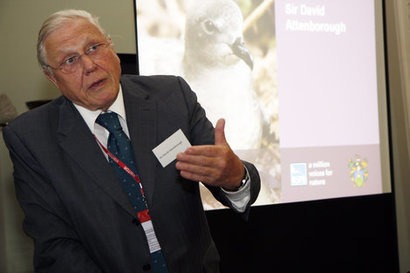
The programme is being developed within the framework of the agreement by world governments to limit global rises in temperature to 2 degrees C in order to avoid catastrophic climate change. This requires an absolute limit on the amount of accumulated CO2 produced. However, unfortunately, at the current level of progress, it seems that temperature level will be exceeded by 2035, the development of the Global Apollo Programme.
The aim of the project is to make carbon-free energy less costly to produce that energy produced by coal, oil and gas. This will in turn require a major programme of scientific and technological research utilising the best scientific expertise the world’s scientists and scientific institutions have to offer. In the shorter term, the objective is to make energy from wind and solar less costly than that produced by coal – in every country across the globe. Those countries joining the programme will agree to devote 0.02 percent of their GDP to public expenditure on renewable energy development, installation and innovation over a ten year period.
The programme is the invention of Sir David King, the UK’s Climate Change Envoy, along with a number of prominent British scientists, economists and businessmen, including Lord Nicholas Stern, author of the Stern Report, Lord Adair Turner and former chief of BP, Lord John Browne.
“I think this is a marvellous change on what has been proposed to deal with the environment” said Sir David Attenborough, warmly endorsing the programme. “In the past, all our warnings about the disasters that are facing us, we’ve said you must stop doing this, and stop doing that, stop burning coal and stop fracking and stop drilling for oil, this at last is saying what we can do positively to help. This is a very positive solution and something that is well within the grasp of any country, any government, to be signed up to this, and if we do, it explains how within ten years we can solve a great proportion of our problems about energy.”
The programme will be modelled on the International Technology Roadmap for Semiconductors which has managed to reduce prices for semiconductors year on year for thirty years.
A Commission of Countries will appoint a Roadmap Committee to identify the bottlenecks to cost reduction year on year. It will also co-ordinate international research to unblock those bottlenecks. Areas to address include electricity storage and transmission and the generation of renewable electricity from wind and solar. The project is hoping to co-locate with the International Energy Agency (IEA) in Paris, but it will also include many countries not currently members of the IEA.
Governments worldwide have warmly welcomed the programme in discussions held over the last year and it will also be mentioned at the G7 meeting
Over the last year the Programme has been privately discussed with Governments worldwide and has been widely welcomed. The issue will also be discussed at the G7 meeting this week on 7-8th June. The hope is that major countries will then decide to join.
For additional information:

